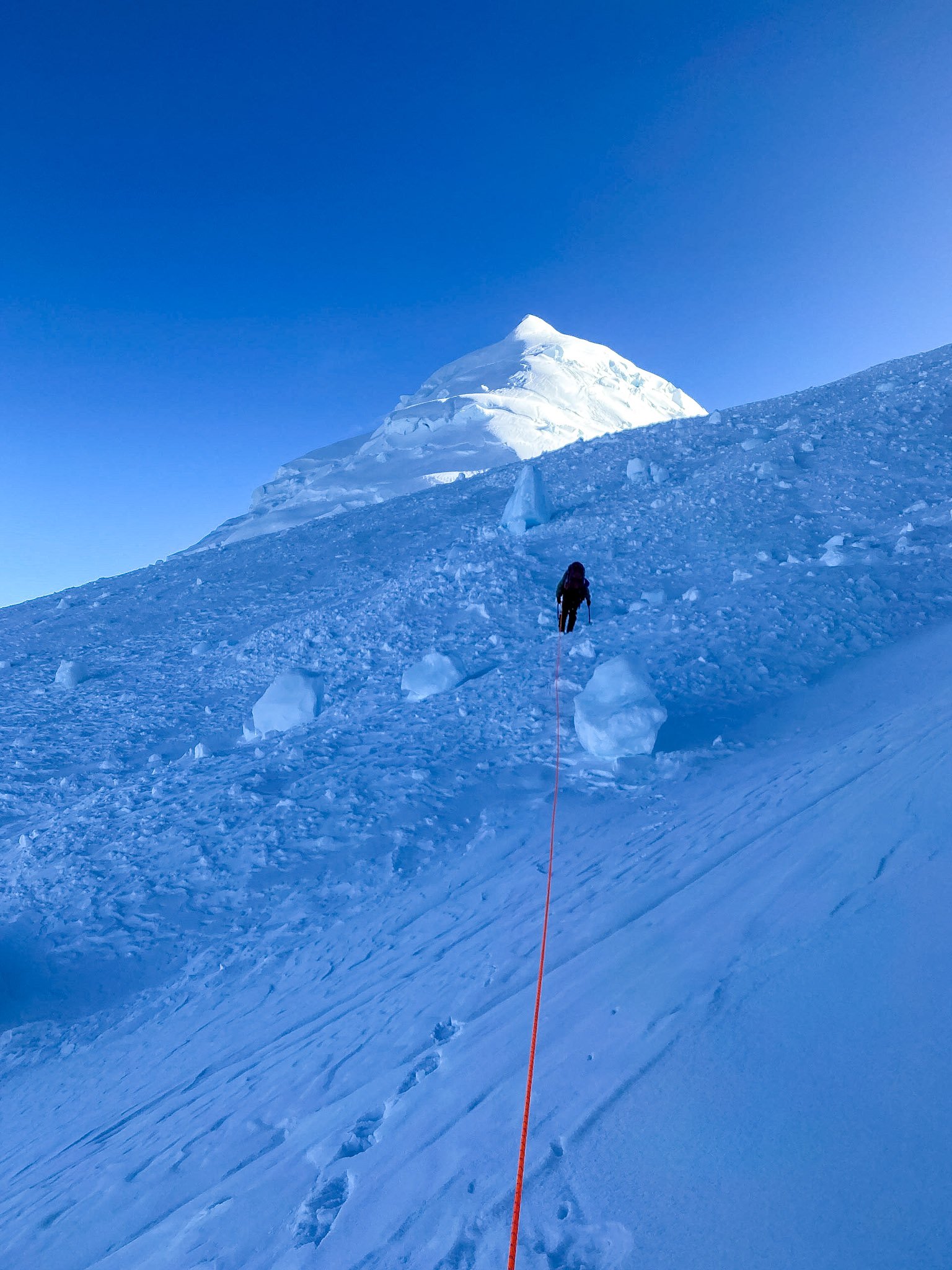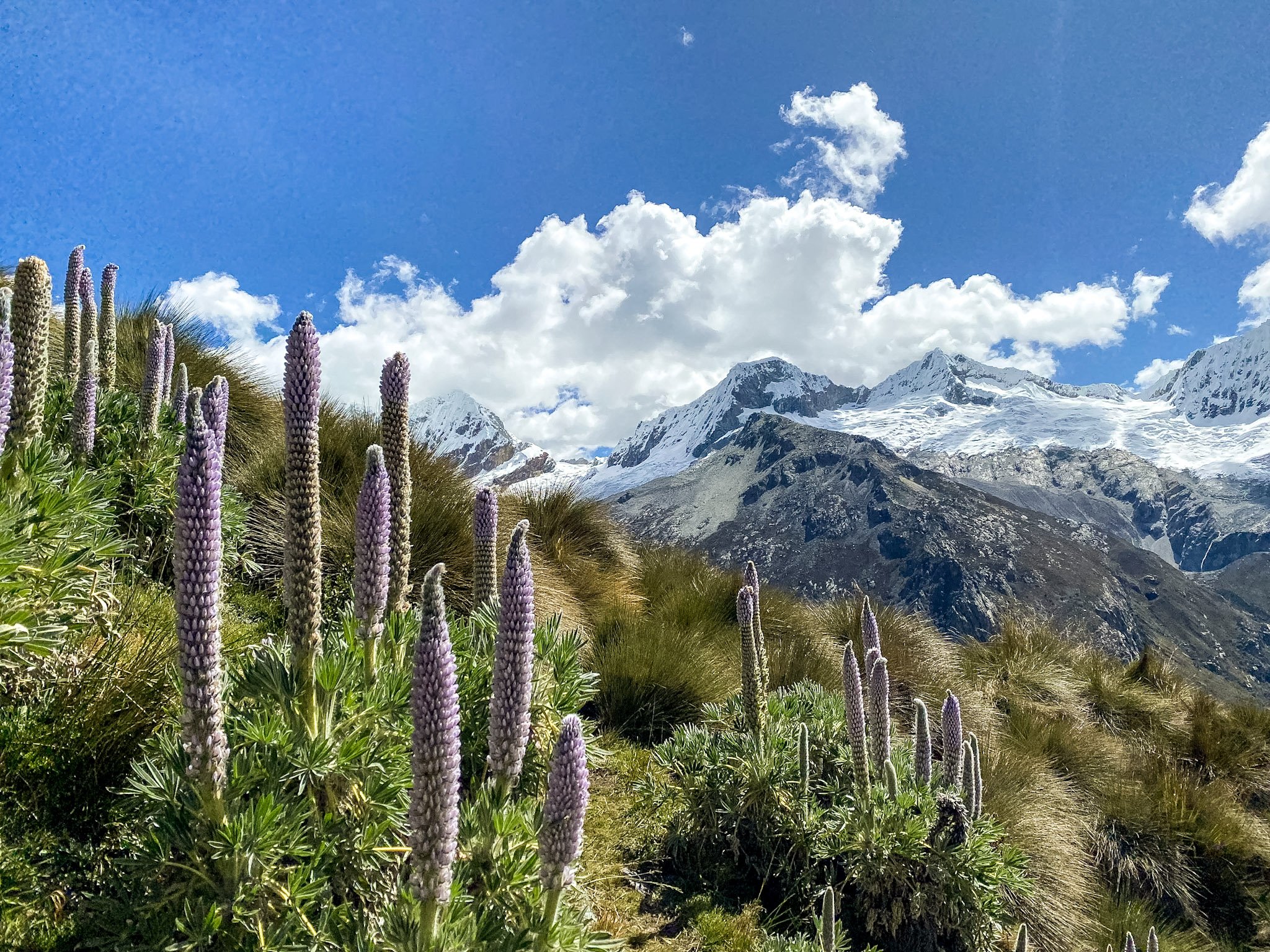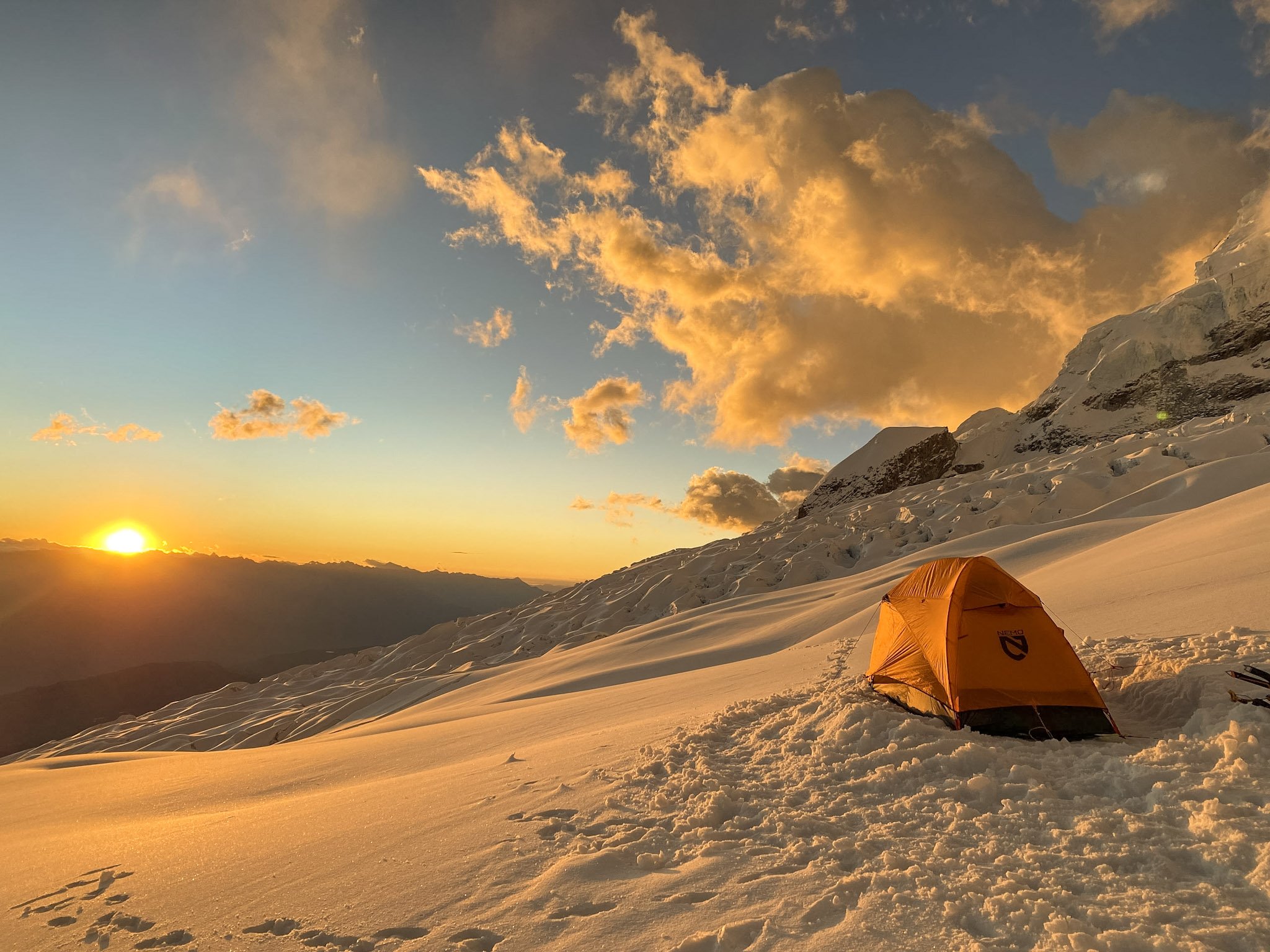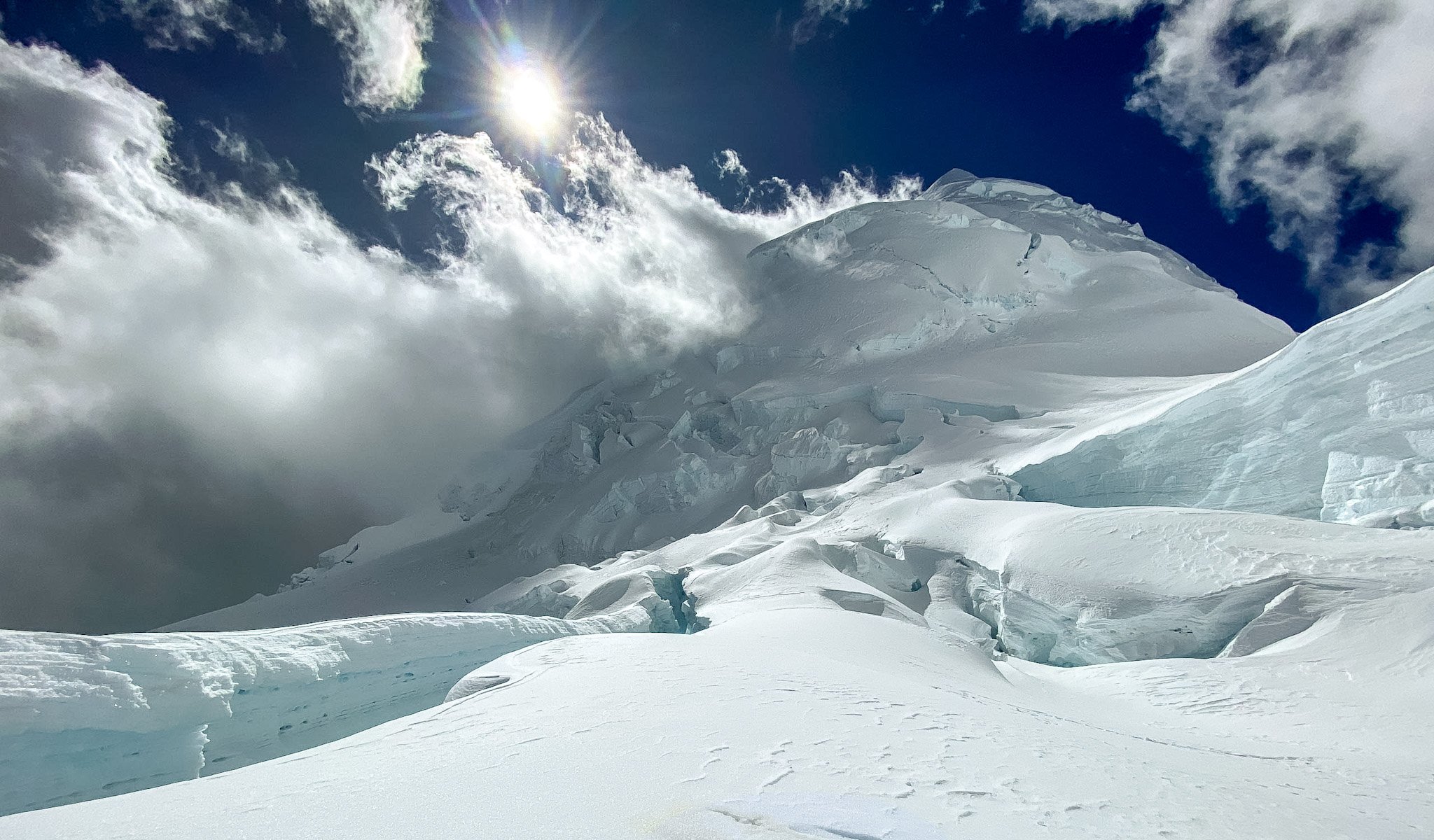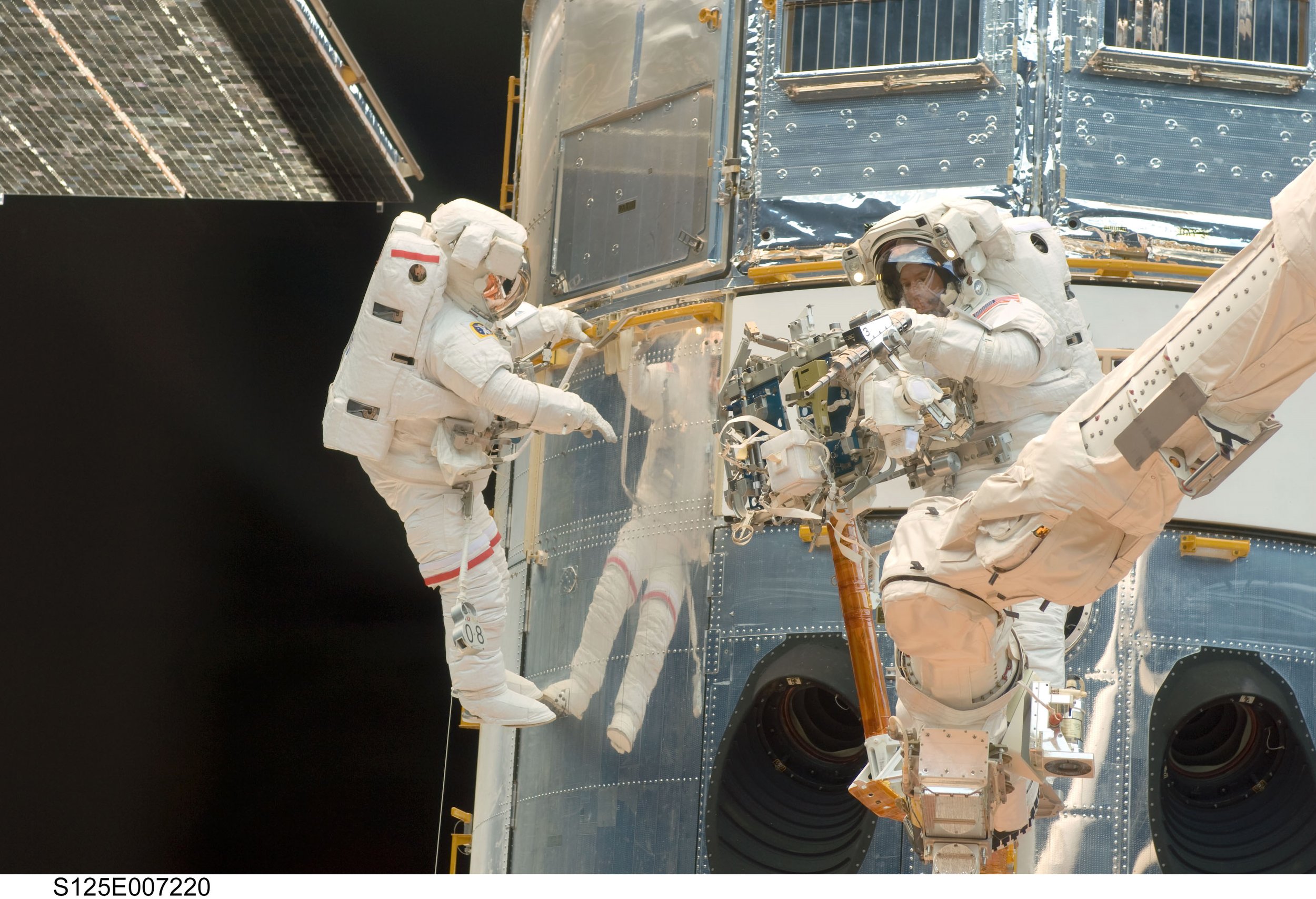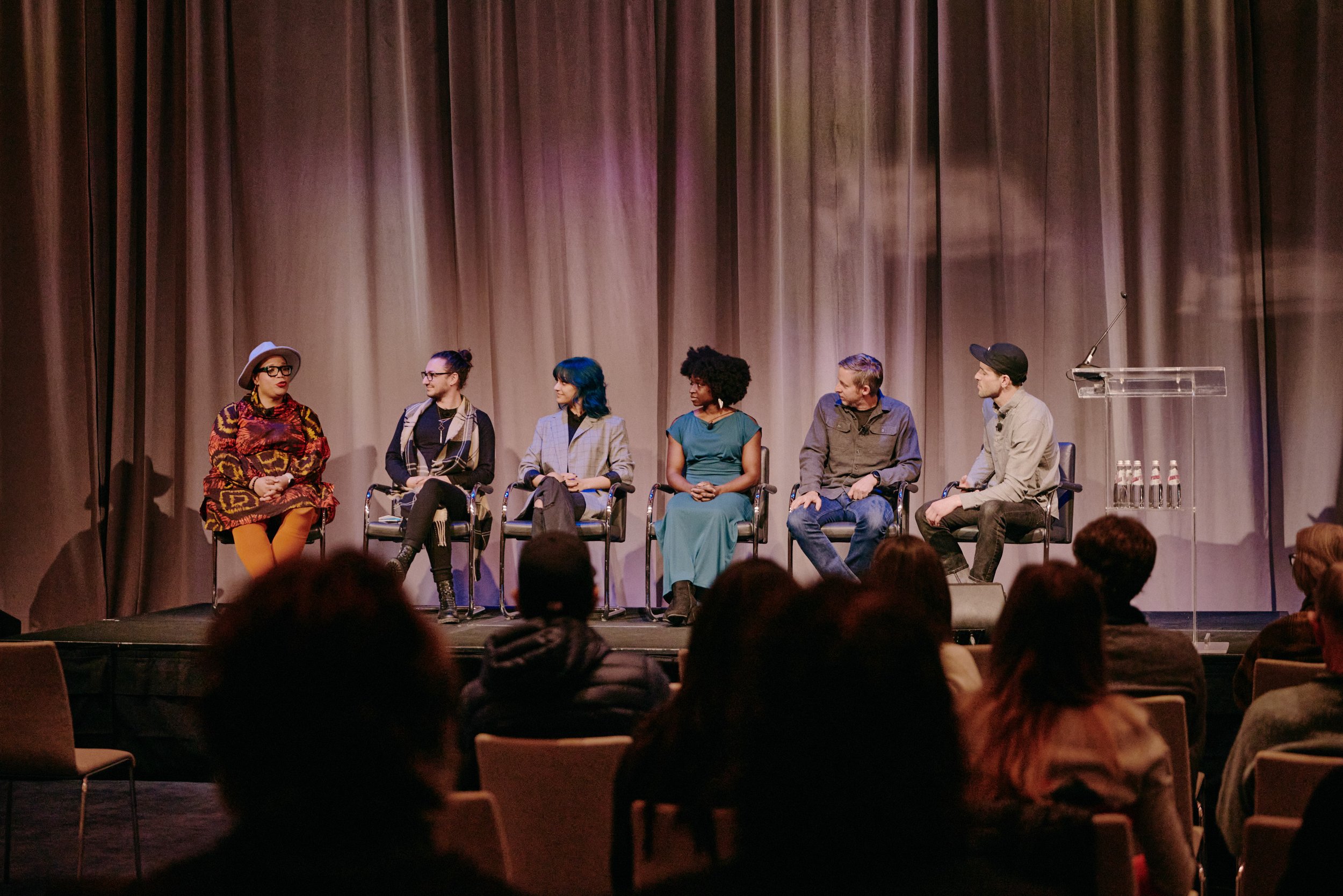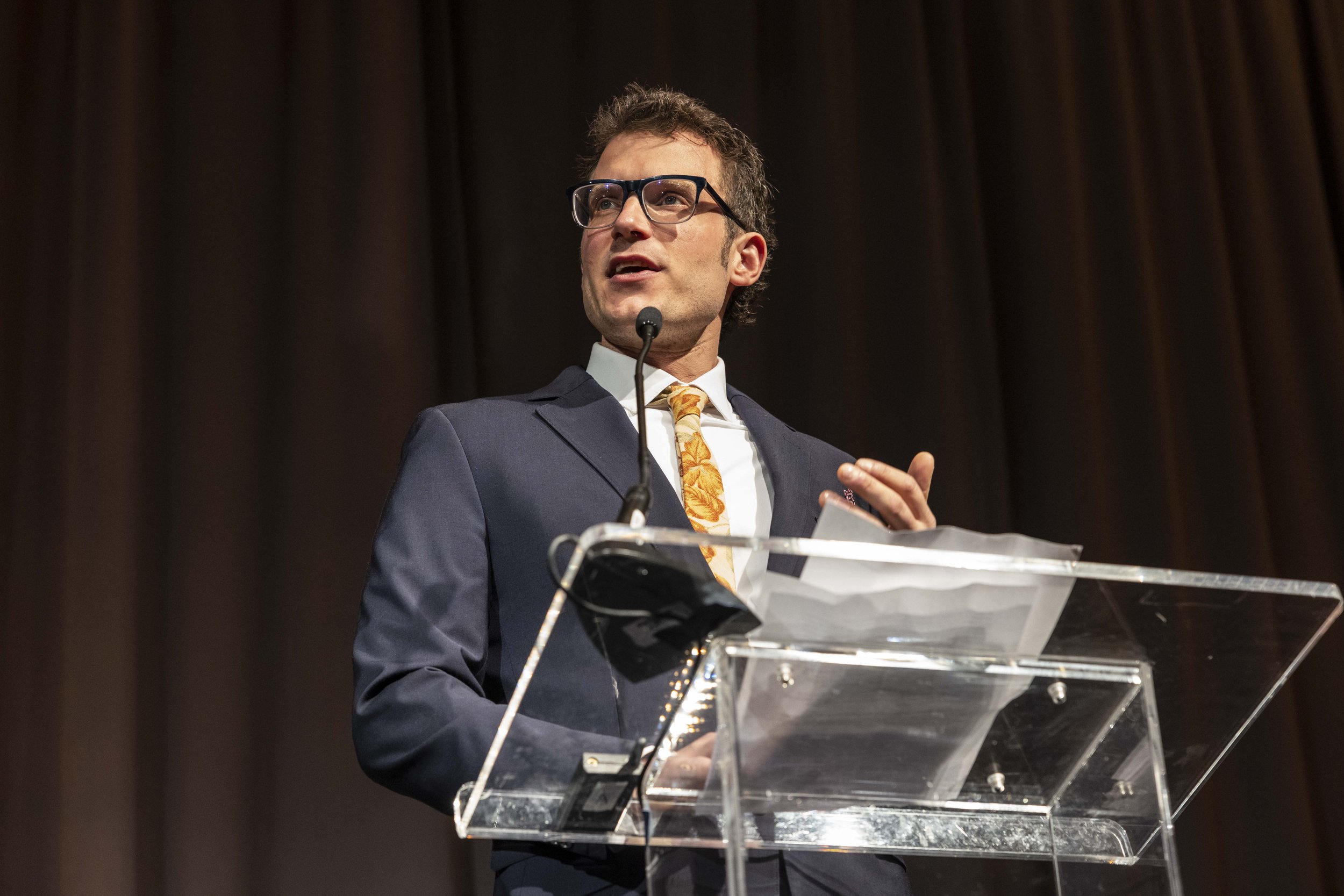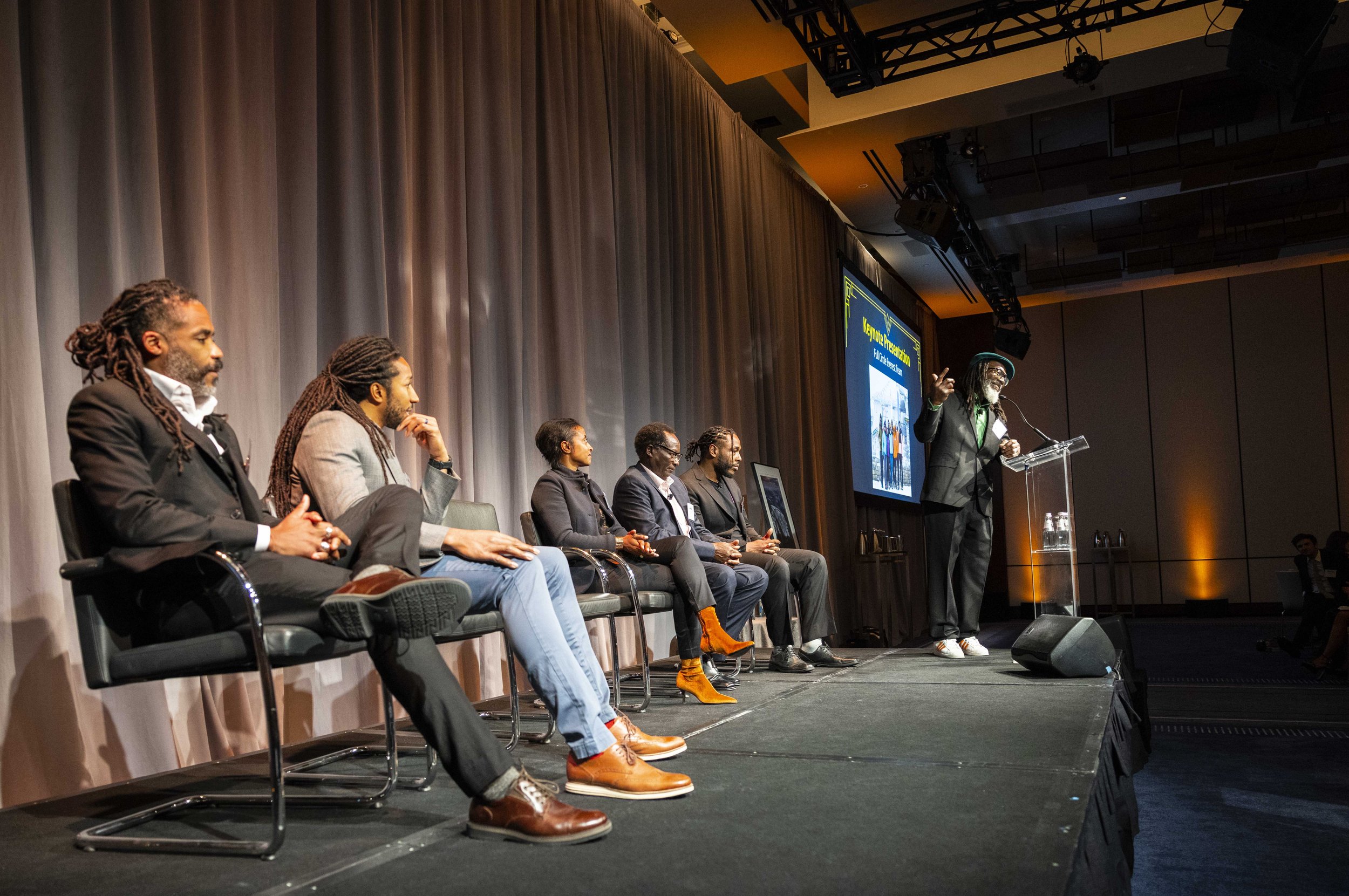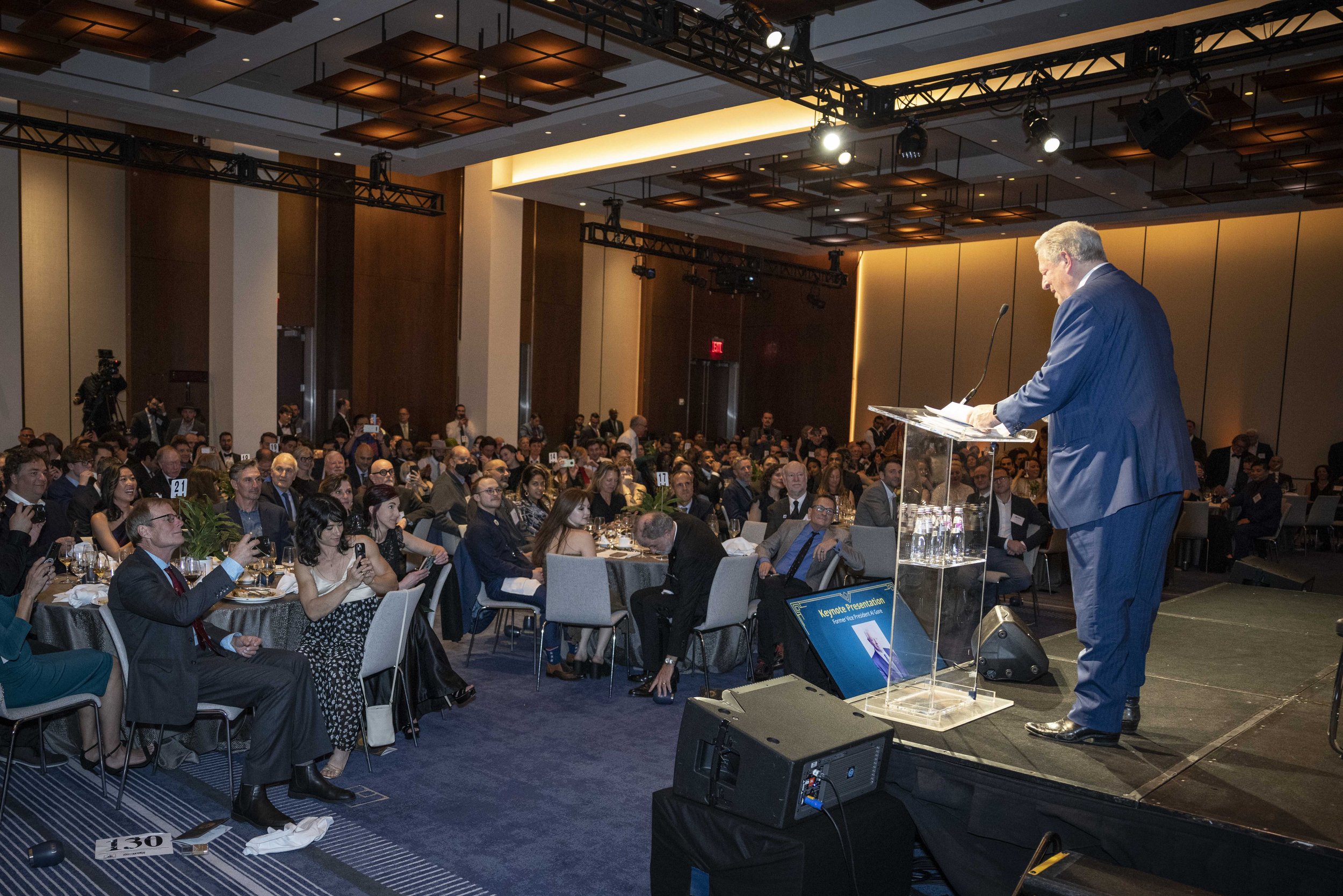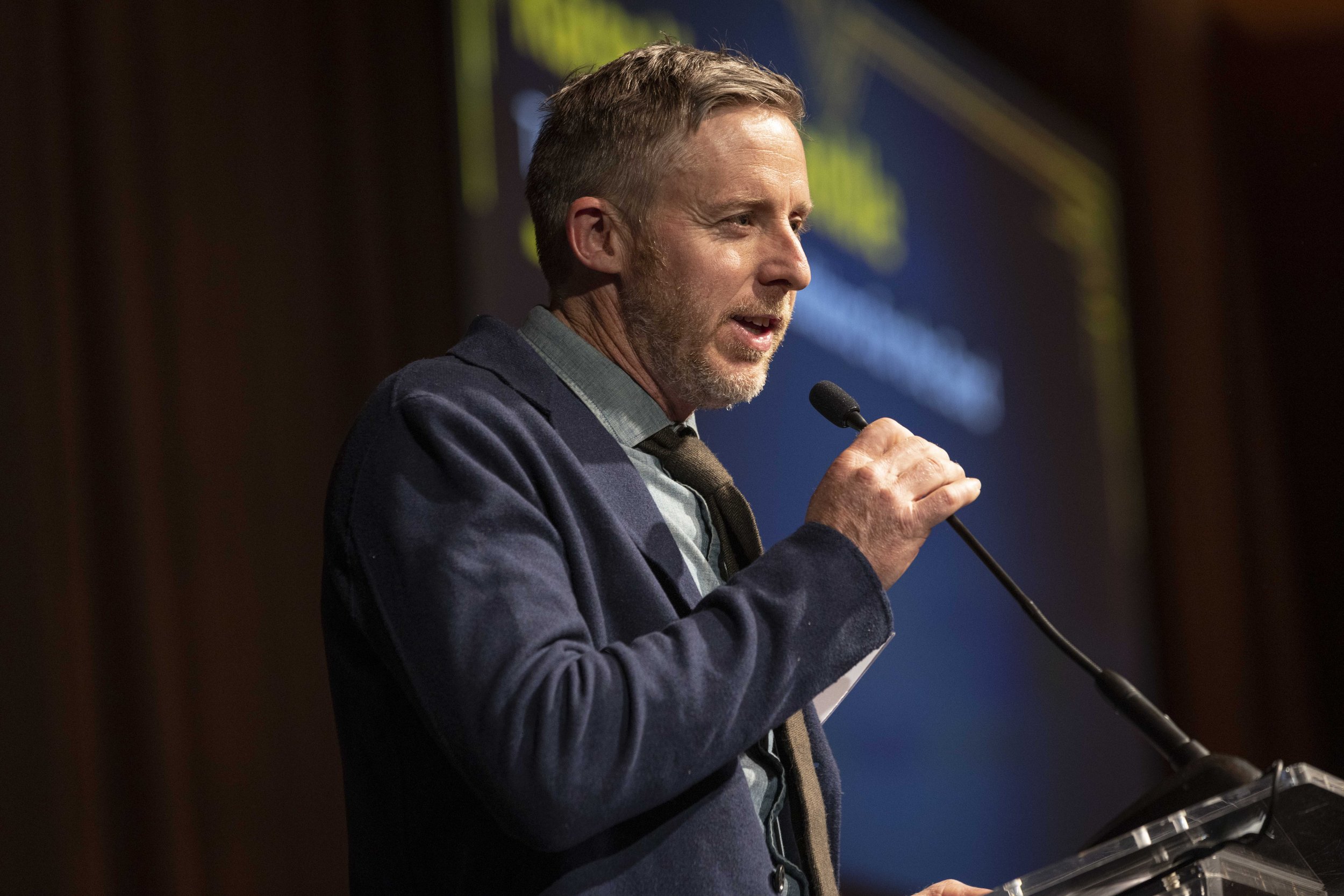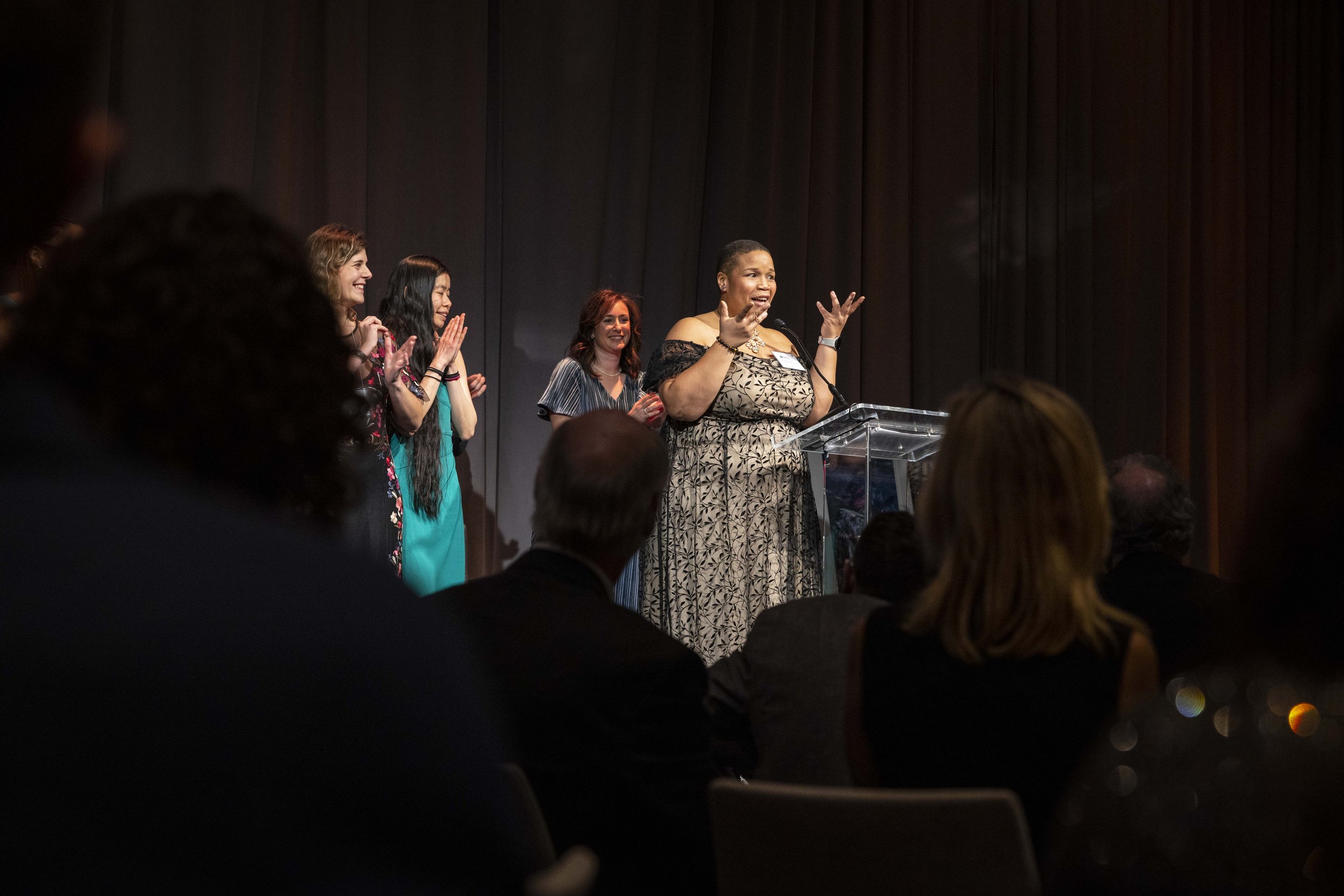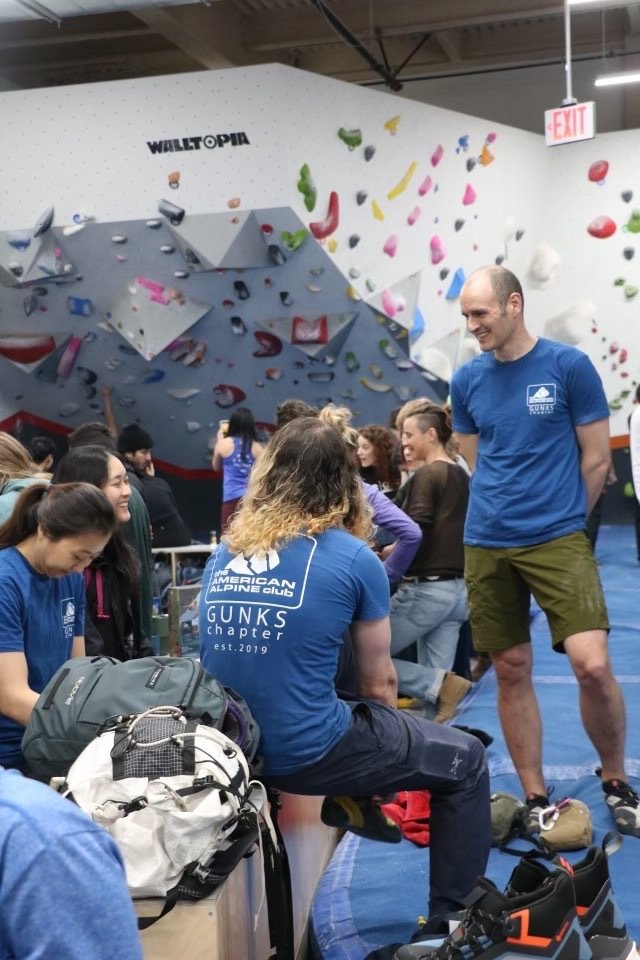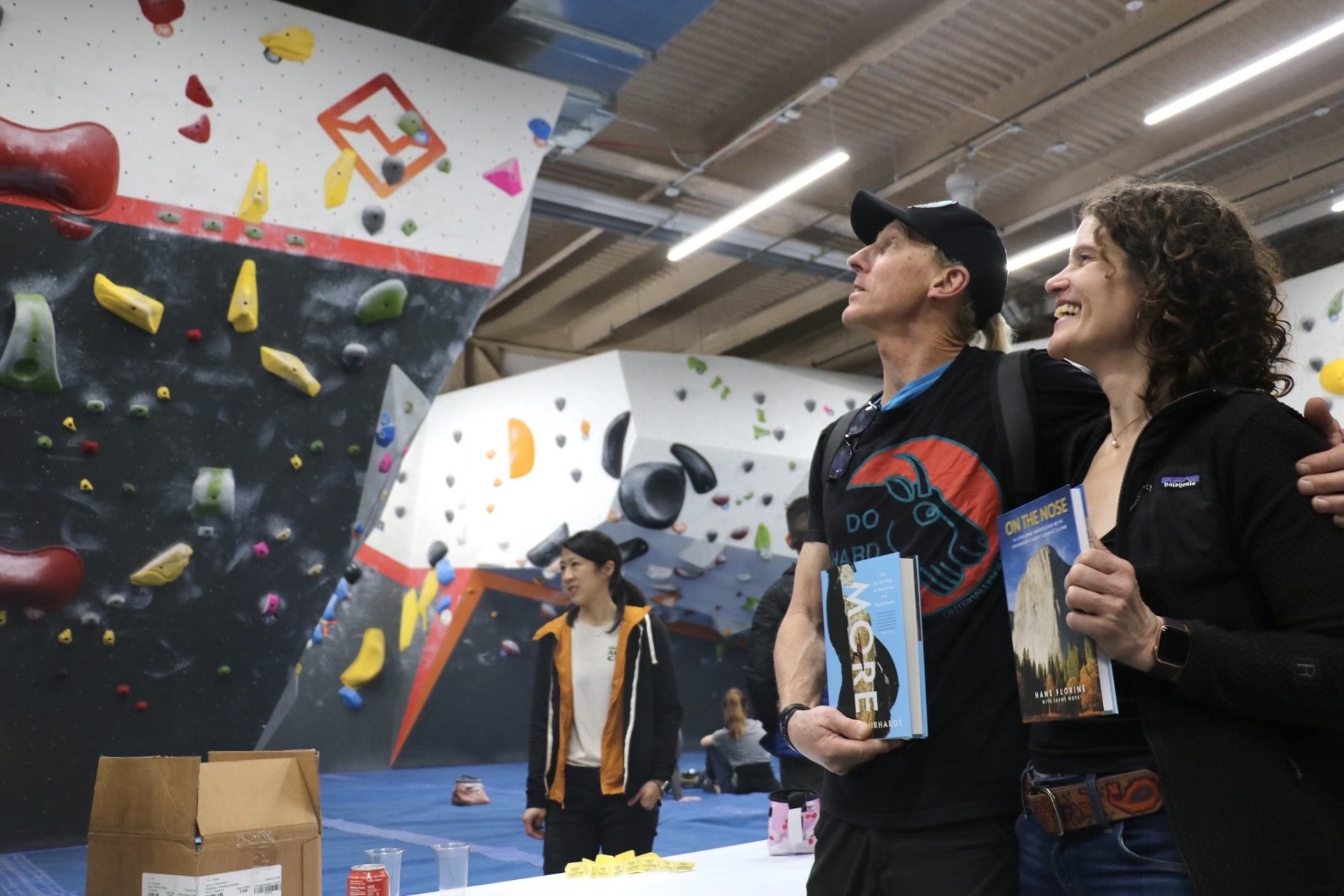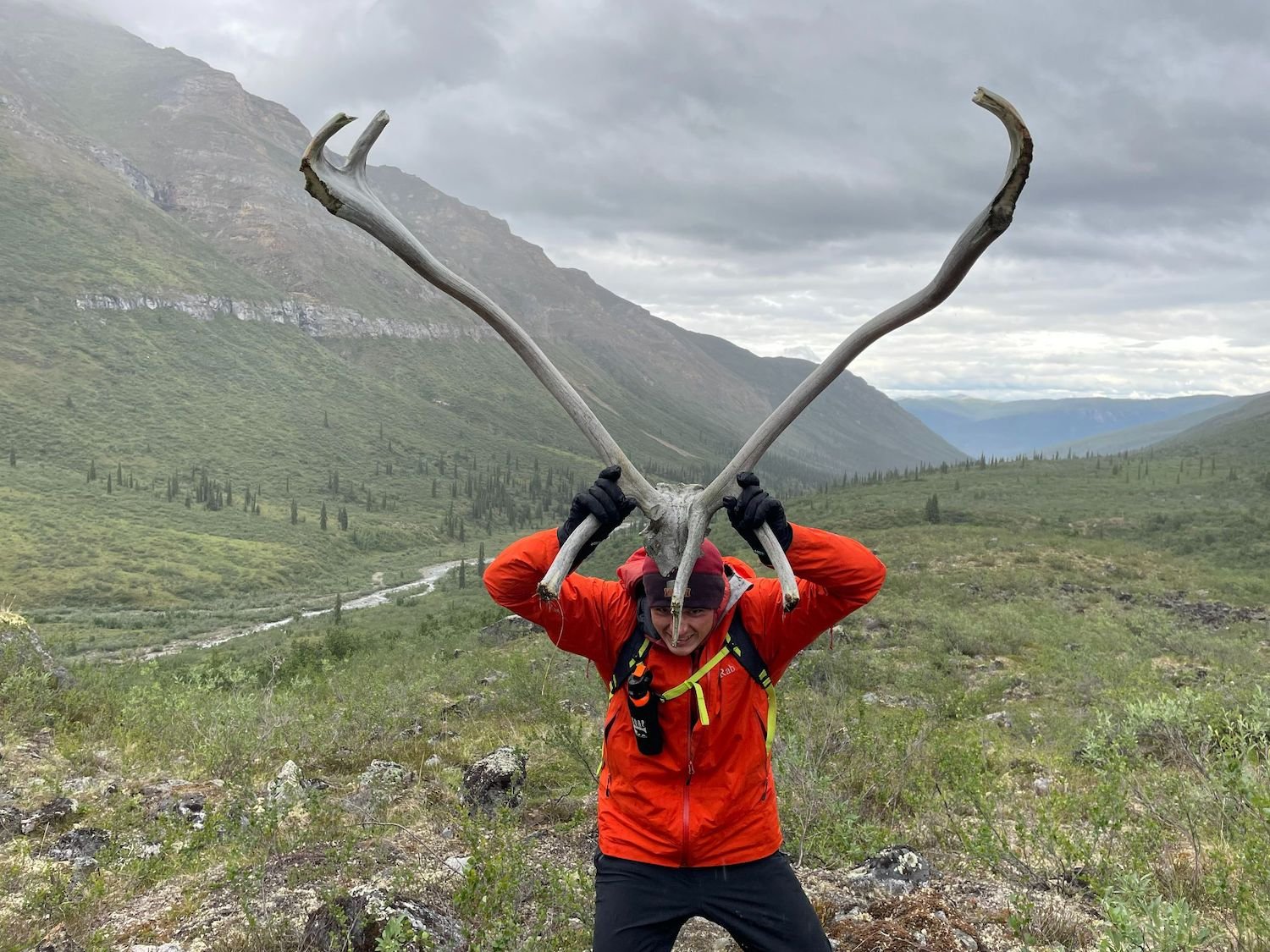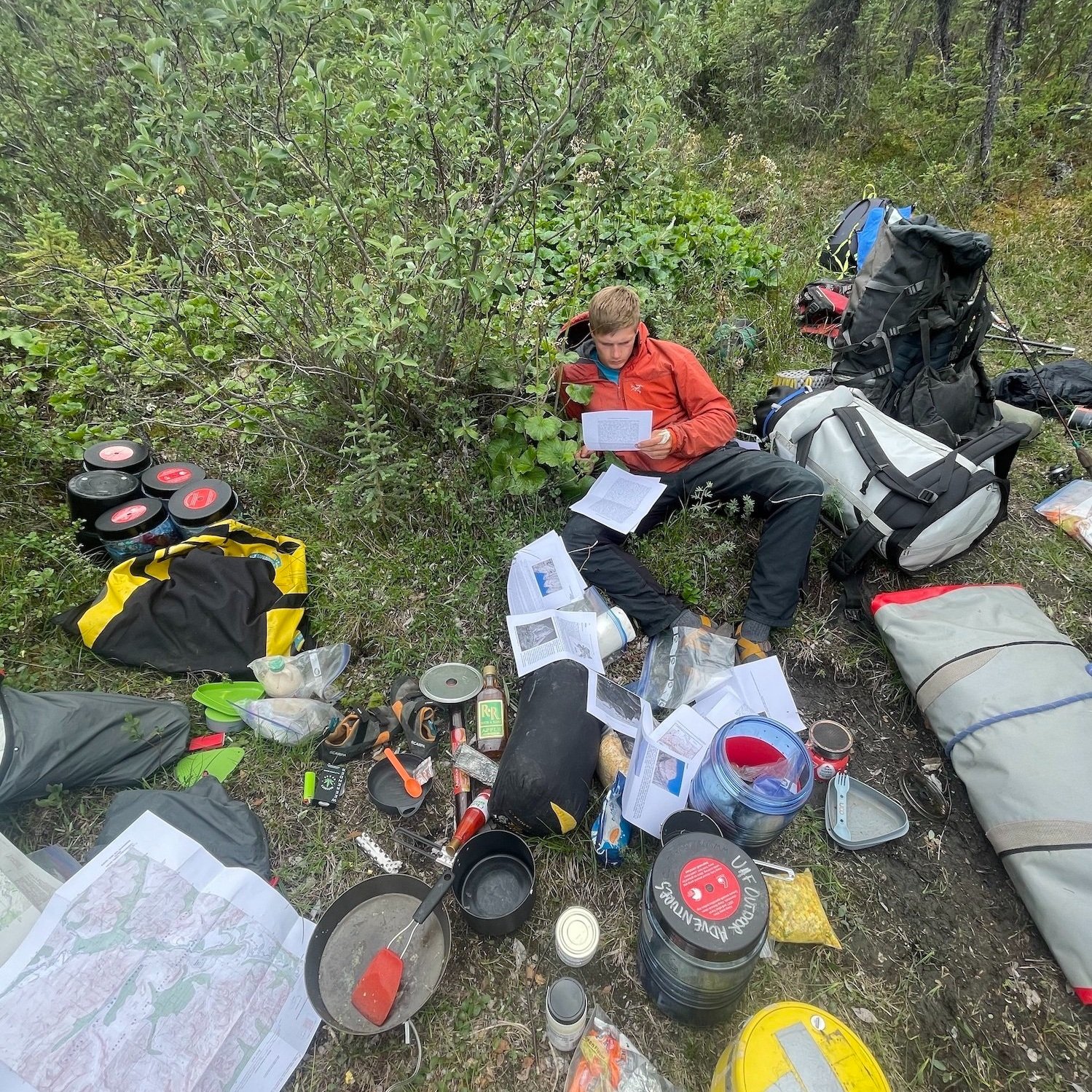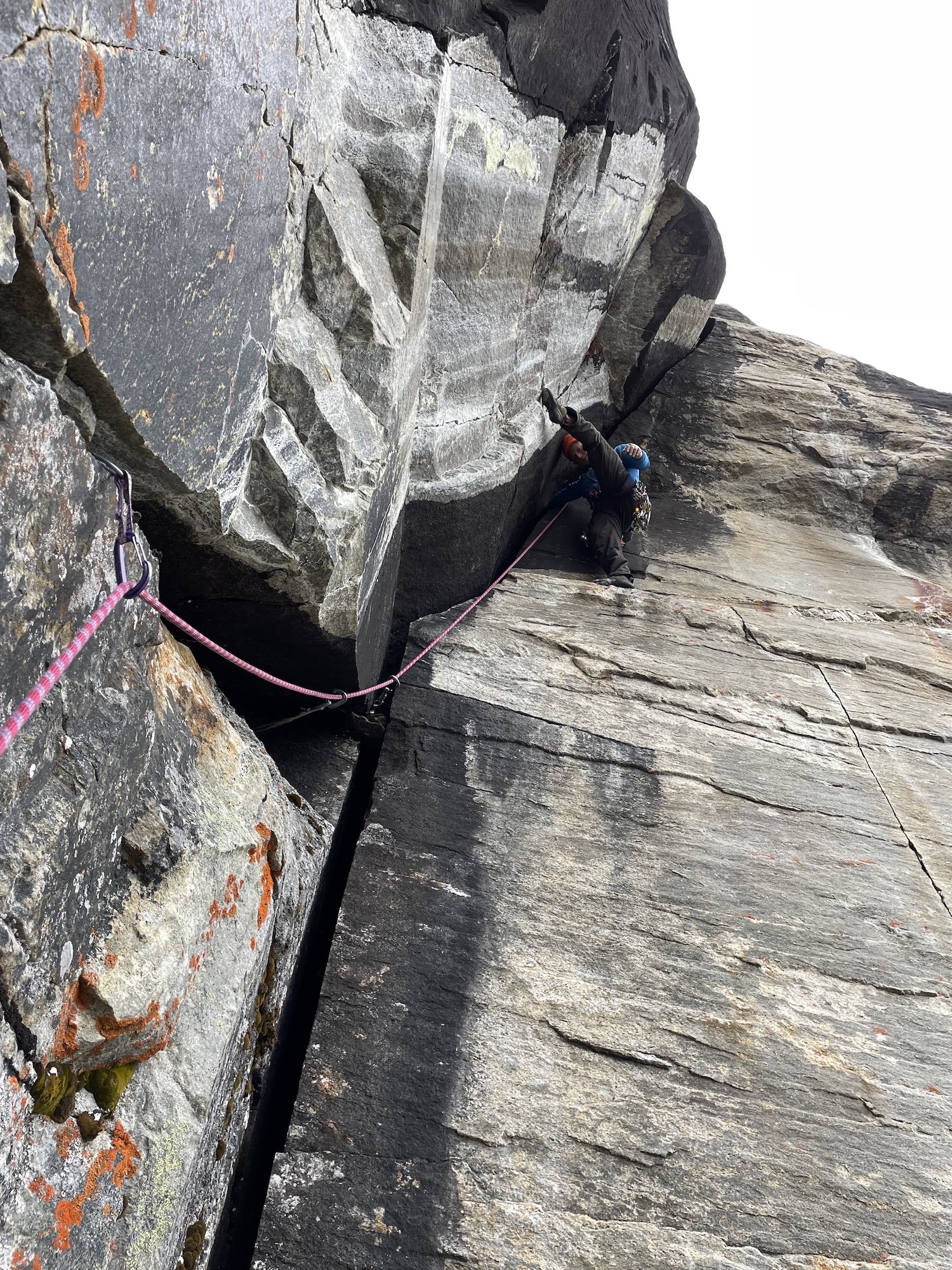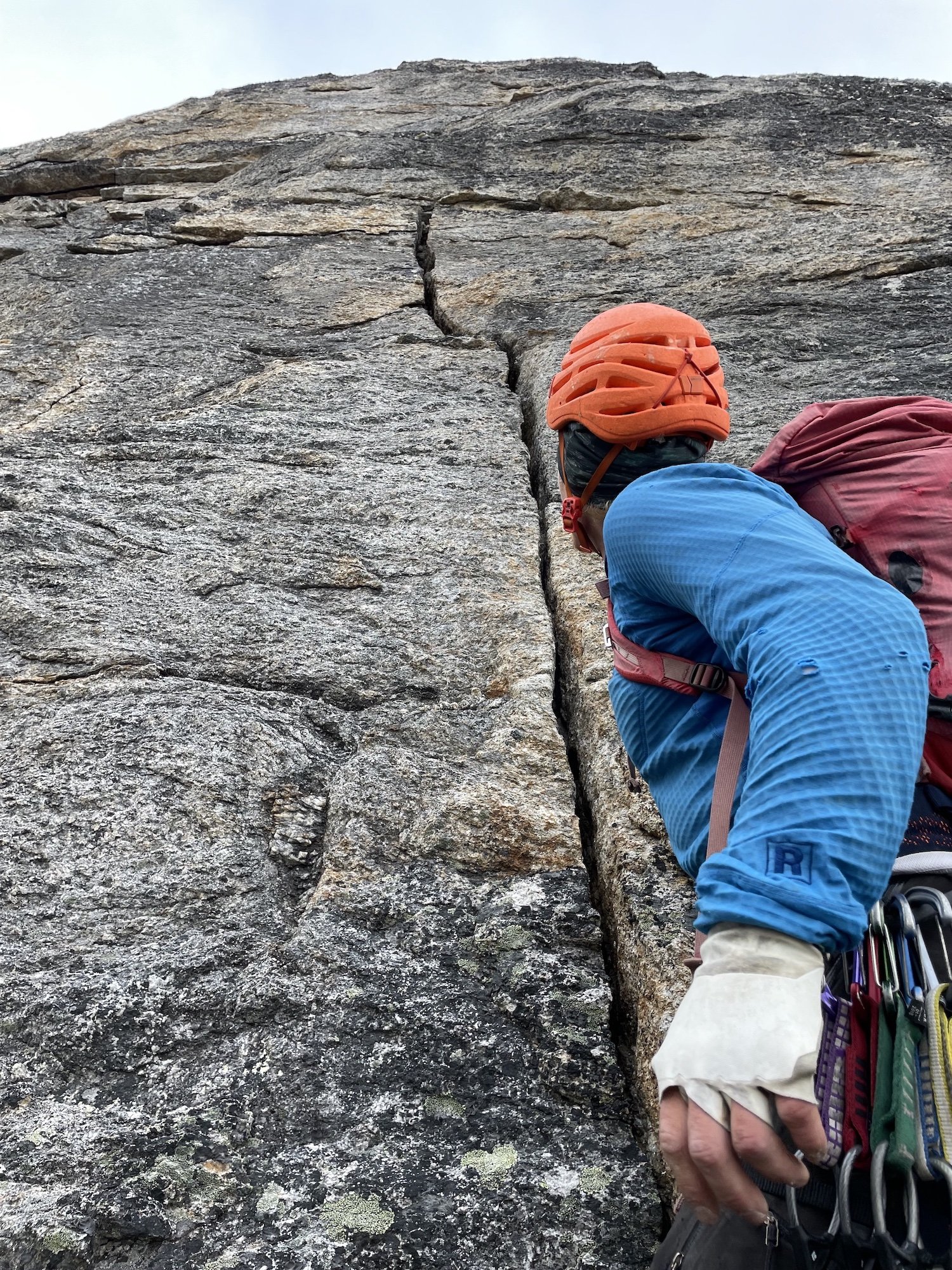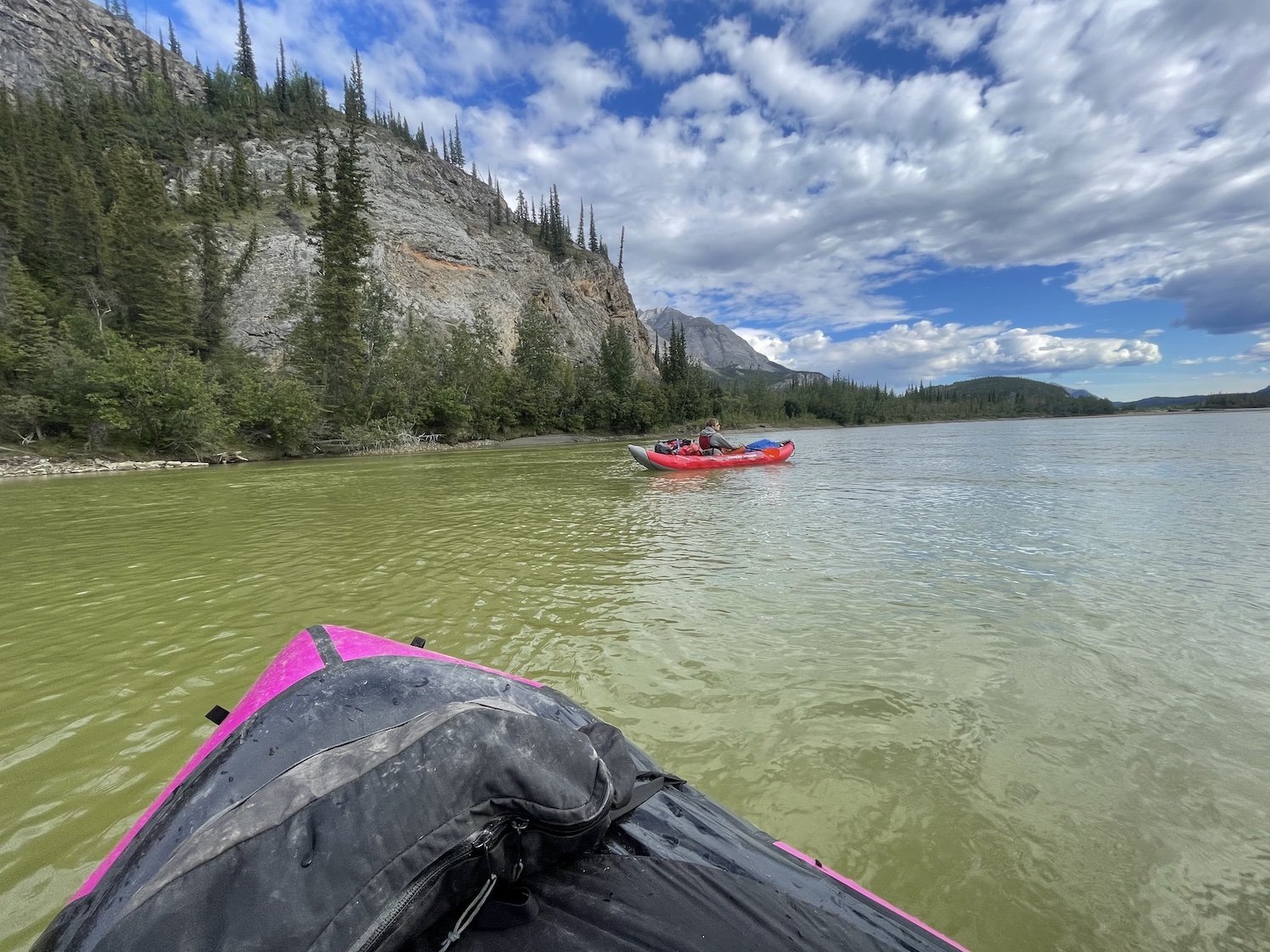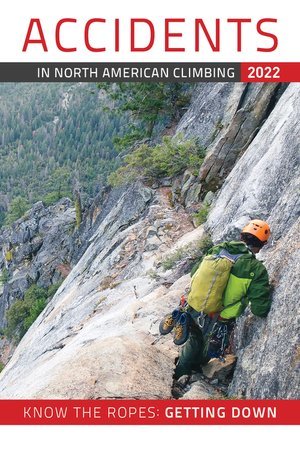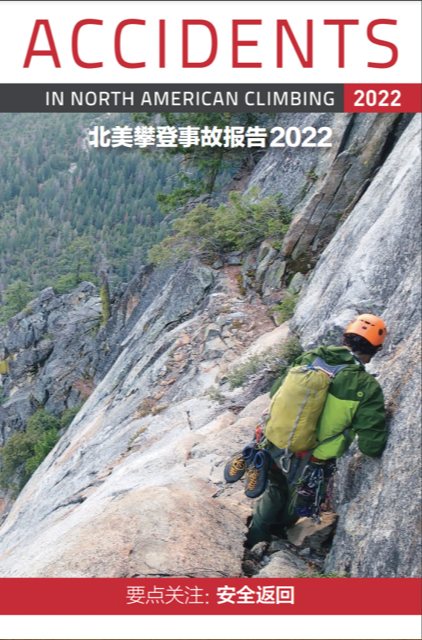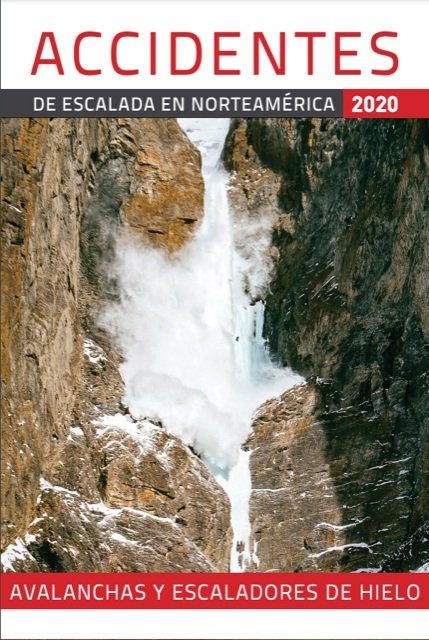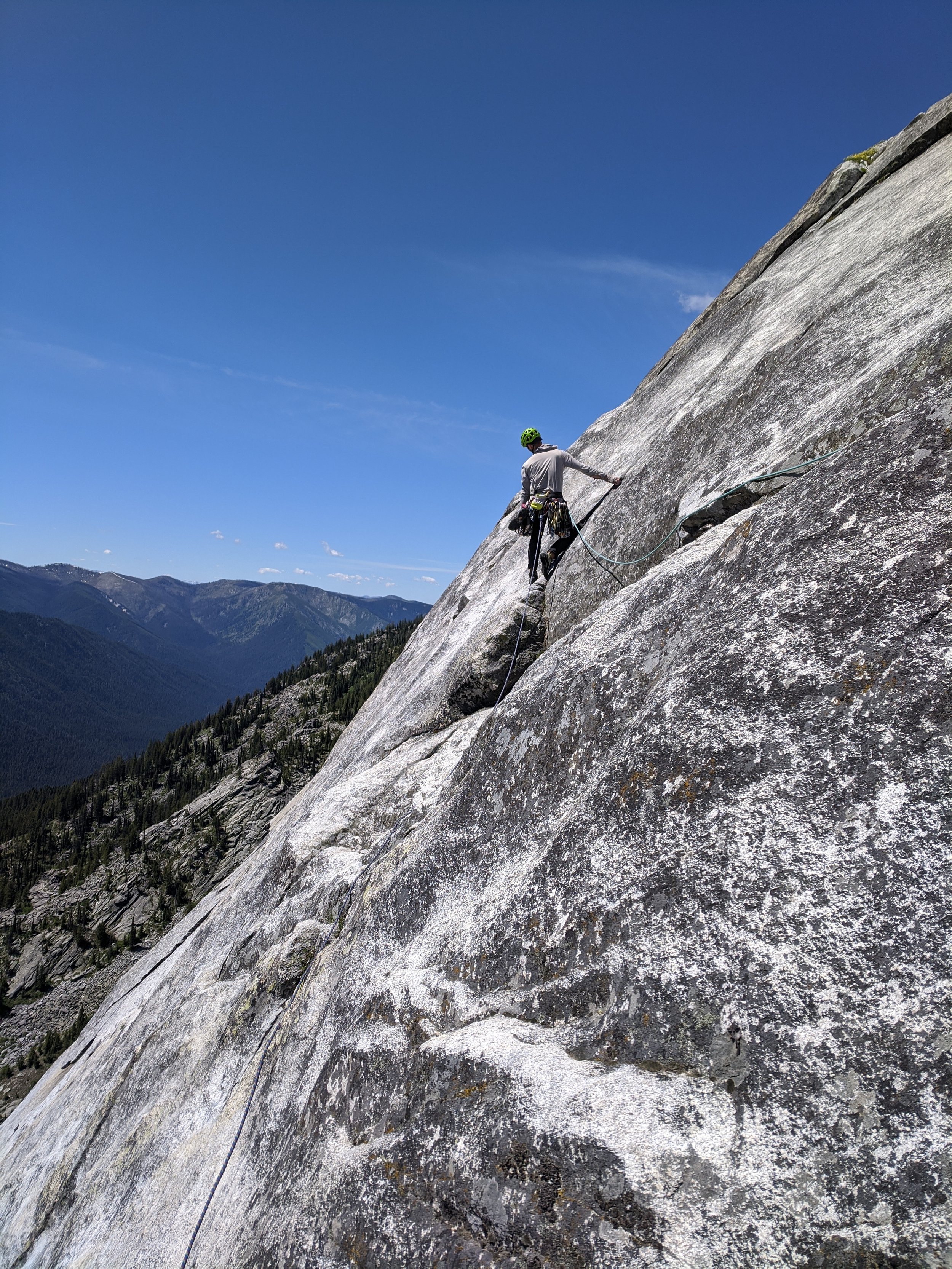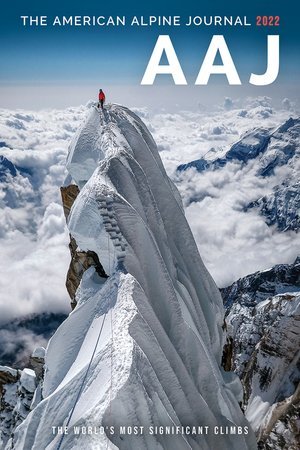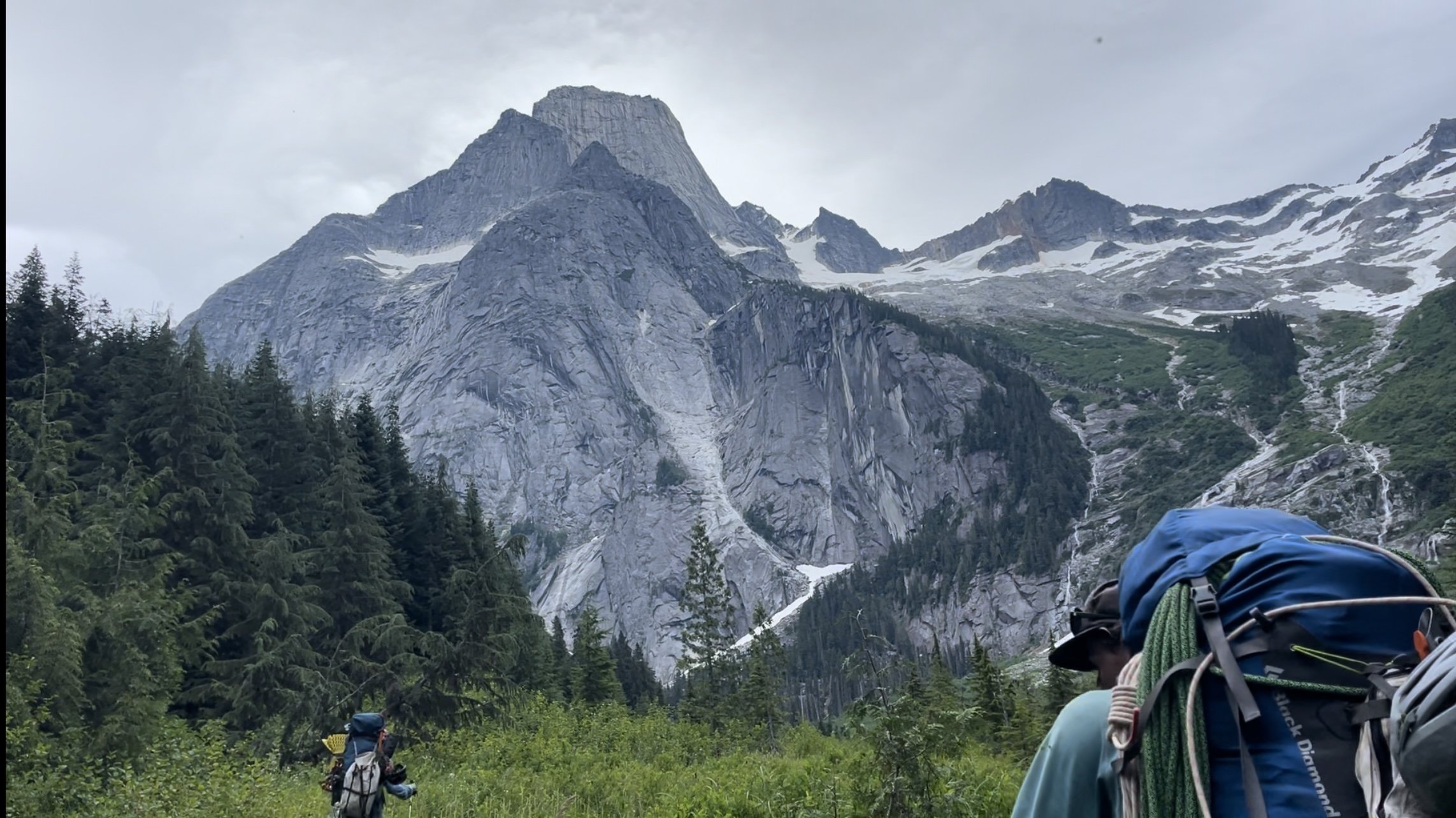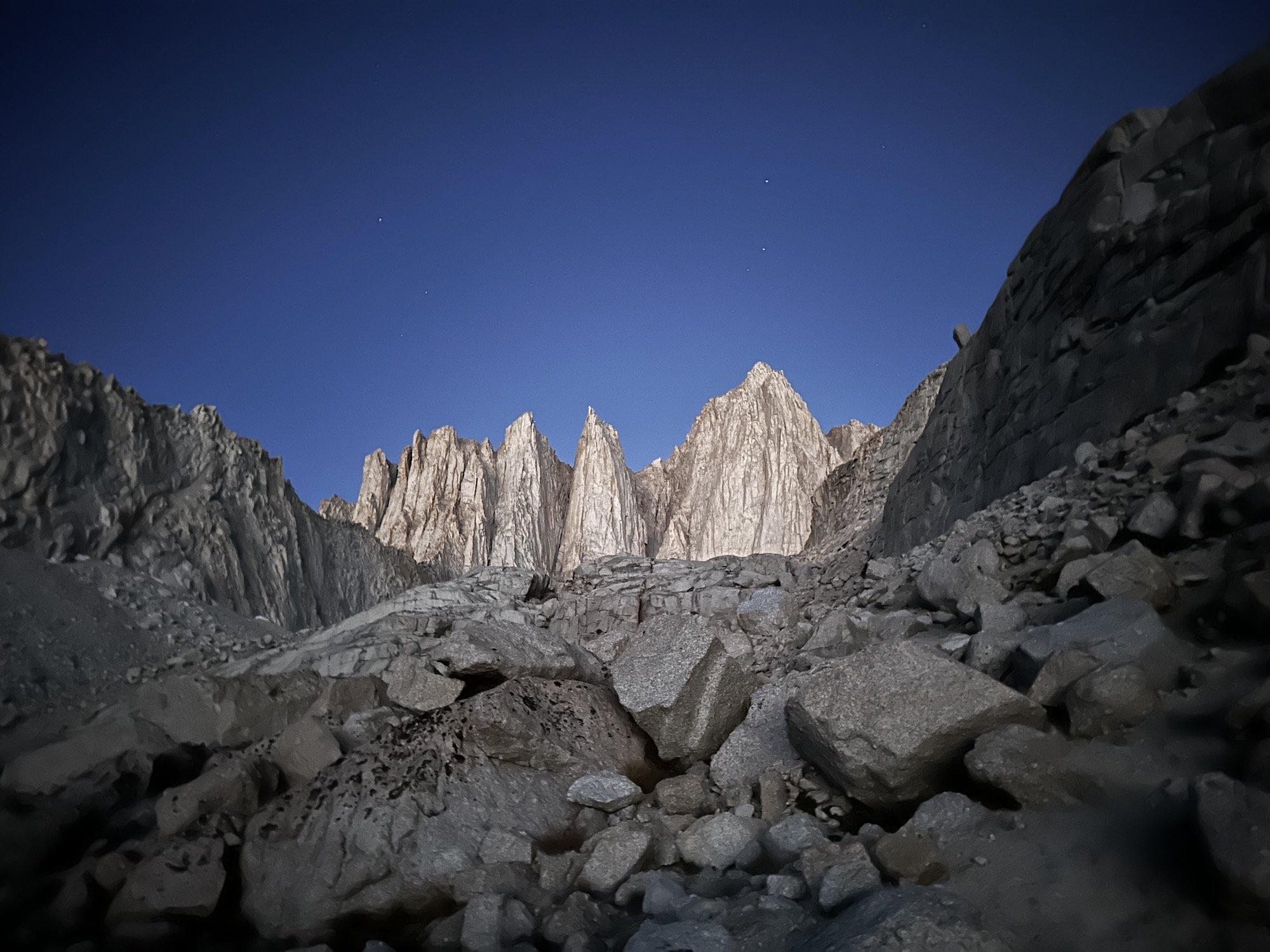“Finally, I reached Odessa Lake. This was a good place to yell for help, as my voice would carry across the water. I heard helicopters circling, and I felt sure they were going to Will and was really relieved. That gave me permission to lie down and rest, but within a few minutes I saw a man and his son. He sent his son in search of help and helped me on the rough trail around the lake to a campsite.
“A couple camping there had two tents. She set me up in a sleeping bag and air mattress. Someone else had a Garmin device and contacted the Park Service.”
Meanwhile, still at the bottom of the East Couloir, Toor, Feduschak, and Gaines awaited more help. Toor recounts, “Around 6:30 p.m. we saw three yellow raincoats—the Park Service hasty team. They had warm blankets and painkillers. The adrenaline was wearing off, and the pain was setting in, so this was very welcome. Eventually, a big National Guard helicopter appeared. Just before 8 p.m. they dropped a litter and an attendant.”
Meanwhile, because of bad weather and impending darkness, Colvin had to stay at the hikers’ campsite overnight. “Two medics hiked in and spent the night with me, monitoring vital signs and administering painkillers,” she said. “They initially thought I would be able to walk out, but it became clear I would need an evacuation. So, the next morning two teams of rescuers transported me to a clearing to be picked up by a helicopter.”
Analysis
Toor and Colvin are very experienced, having climbed since the 1980s in the Tetons, Colorado, and the Canadian Rockies. One can argue in favor of the use of ropes and intermediate protection on snow climbs, but given the pair’s competence, such precaution might have only slowed them down, exposing them to even softer snow conditions.
The team’s late start due to the national park’s timed entry played an important role. Toor wrote that as they started up the couloir, “We were a bit concerned about the temperature.” While RMNP’s timed-entry system can be a challenge, it also reinforces best practices by encouraging an early arrival at the trailhead. A 5 a.m. start might well have prevented this accident.
Alpine climbing is full of unforeseen hazards. In line with Toor and Colvin’s cornice fracture theory, Park officials also suspect the cornice hadn’t melted out completely, contributing to its collapse.
Toor says, “SO MANY people put themselves out to save us, in little ways and in big ways, with skill, enormous effort, discomfort (the climbers with me had to jog to stay warm because I had their warm clothes, and that couple gave up their tent and sleeping bag for Mariella), and real risk (the helicopter team). I just can’t thank everyone enough. I am buying a Garmin InReach for us and one for my son Nicky.
(Sources: Will Toor, Mariella Colvin, Rocky Mountain National Park.)









